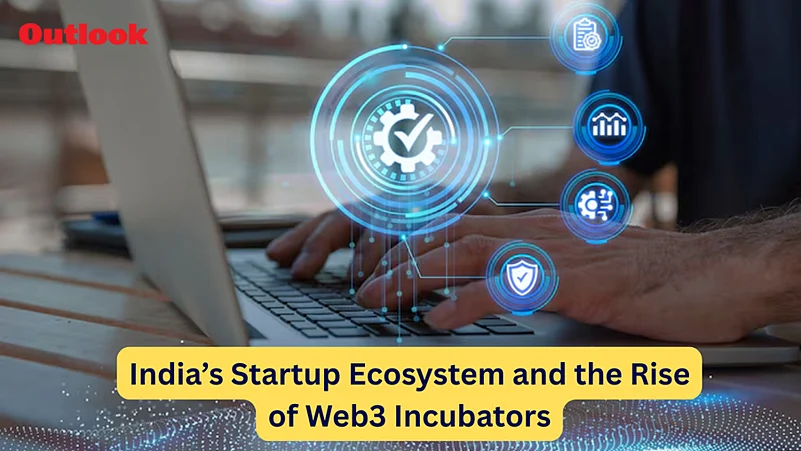India is now among the world's top leaders in startup ecosystems, driven by technology, finance, healthcare, and education entrepreneurs. The ecosystem has grown exponentially over a decade with greater access to capital, ubiquitous mobile internet, initiatives like Startup India, and a speeding-up demand for innovation. One more new and powerful layer is now being layered onto the ecosystem—Web3.
Web3 is the emerging web, built on blockchain technology. Web3 is decentralized in contrast to Web2, which is central and fueled by a small number of influential businesses. Web3 gives users greater control over their data, privacy, and interaction with websites on the net. In India, the revolution is presenting the promise of investors, developers, and even nascent start-ups that are remolding the digital universe.
This is where Web3 incubators come in.
What are Web3 incubators?
Web3 incubators are structured programs that invest in early-stage blockchain and crypto startups with resources, capital, and exposure to a global network. They're similar to normal startup accelerators but decentralized tech-focused like cryptocurrencies, smart contracts, decentralized finance (DeFi), NFTs, and blockchain-based infrastructure.
Such incubators can offer technical assistance, aid startups in networking with blockchain communities, offer tokenomics development assistance, and help with initial coin offerings (ICOs) or crypto funding of another nature. They can also offer legal and regulatory support, which is of inestimable value given the vagueness in crypto regulations in India and globally.
Why India Is Fertile Ground for Web3 Startups
India possesses the perfect mix of ingredients for Web3 innovation:
Young Talent Pool: India graduates hundreds of computer science and engineering graduates every year. They are well-acquainted with open-source development and are keen on creating blockchain projects.
Digital Infrastructure: The ubiquity of digital payment systems like UPI and digital identity through Aadhaar has habituated Indians to love fintech and digital solutions.
Increased adoption of crypto: Despite regulatory concerns, India is one of the biggest markets for crypto users. More and more of the youth are investing heavily and starting crypto-based enterprises.
Global recognition: Indian Web3 developers and businesses are being noticed globally. Indian blockchain startups have been participating in international hackathons, accelerators, and crypto exchanges.
Emergence of Indian Web3 Incubators
Some Indian and global incubators have started Web3-specific programs to tap into the talent pool here. These incubators would generally offer pre-seed funding, guidance from industry experts, access to a community of builders, and counsel on regulatory and compliance matters.
These incubators tend to focus on niches like:
Decentralized finance (DeFi)
GameFi (Gaming + DeFi)
NFTs and art
Identity and data protection
Blockchain infrastructure and tooling
Challenges in the Web3 Startup Ecosystem
With all this energy, it is not easy to launch a Web3 startup in India. Some of the significant challenges are:
Regulatory Uncertainty: Indian crypto policy is unclear. Blockchain technology is not being blocked at the government level, but exchanges and crypto tokens are broadly on the list. That is nothing for long-term planning by startups.
Funding Availability: Traditional startups have plenty of VC to choose from, but Web3 funding is scarce. Startups would try to rely on international platforms or token sales, both of which are high-risk.
Talent Shortage: There may be talent out there, but blockchain development is a niche skill. There are more education and training in skills schemes required to expose developers and entrepreneurs to Web3.
Trust and Awareness: People still consider blockchain and crypto as unsafe or complicated. User trust building is the biggest challenge for Web3 startups, particularly in the sectors of finance and identity.
The Way Forward
India's Web3 future relies on a careful balancing act of visionary policies, education, social support, and technological leadership. Accelerators and incubators can lead the change by lowering the entry barrier for early-stage entrepreneurs and equipping them with the capabilities to innovate responsibly.
Support by the government will also be crucial. As much as a crystal-clear policy framework is yet in the drawing board stage, good-intentioned initiatives—such as sandbox initiatives and blockchain implementation of public services—can be a powerful demonstration of faith that India will be able to lead Web3 development.
In our own words, Web3 incubators are not just support programs—Web3 incubators are the incubators of the next generation of decentralized technology. With India's startup ecosystem growing by the minute, Web3 incubators will be at the forefront of empowering innovators to create a digital future that is open, secure, and community-driven.





















